Installing butcher block countertops can transform your kitchen with their warm, rustic charm and functional surface, but it’s essential to understand the associated costs to budget effectively. The cost to install butcher block countertops varies widely based on several factors, including the type of wood, the size of the countertop, labor, and additional customizations. On average, homeowners can expect to pay between $40 and $100 per square foot for materials and installation.
The type of wood chosen for your butcher block countertop plays a significant role in the overall cost. Common woods like maple and birch are more affordable, typically costing between $20 and $40 per square foot. More exotic woods, such as walnut, cherry, or teak, can range from $50 to $100 per square foot or more. These premium woods offer unique grains and colors but come with a higher price tag. Additionally, sustainably sourced or reclaimed wood might also increase costs due to their eco-friendly attributes.
Size and thickness of the countertops also influence the cost. Standard butcher block countertops are usually 1.5 inches to 2 inches thick. Thicker slabs, which provide a more substantial and durable surface, can cost more. Custom sizes to fit specific kitchen layouts or larger islands will also add to the overall price. It’s crucial to measure your kitchen accurately and plan for any special cuts or extensions needed for a perfect fit.
Labor costs are another essential factor in the overall expense of installing butcher block countertops. Hiring a professional installer can cost between $40 and $70 per hour. The complexity of the installation, including cutting the wood to fit around sinks, appliances, and corners, can increase labor costs. Installation time can vary from a few hours to a full day, depending on the size and intricacy of the project. Some homeowners might choose to install the countertops themselves to save on labor costs, but this requires a good understanding of carpentry and careful planning.
Additional costs might arise from the need for finishing and sealing the wood. Butcher block countertops require proper sealing to protect against moisture and stains. The type of finish, whether it’s mineral oil, beeswax, or a more durable polyurethane, affects the price. Regular maintenance is also necessary to keep the wood in good condition, which can add to the long-term costs. DIYers can find finishing products ranging from $10 to $50, depending on the brand and quantity.
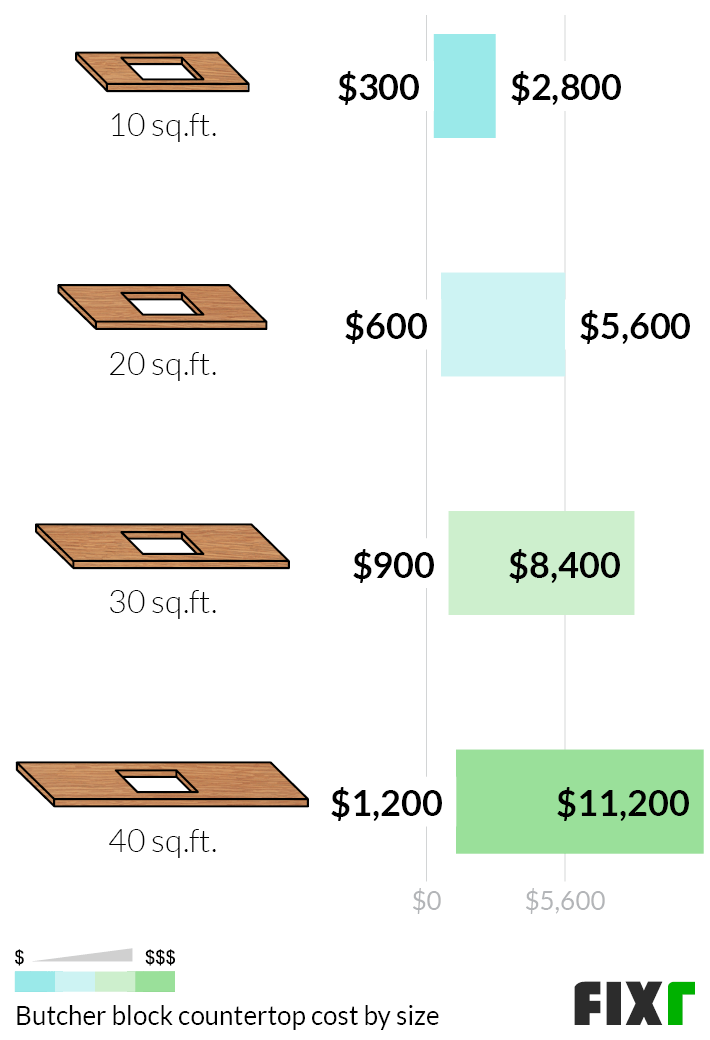
In some cases, existing countertops need to be removed before installing new butcher block surfaces. This process can incur extra charges. Removal costs depend on the type of material being removed and the complexity of the job. On average, you might spend an additional $200 to $500 for countertop removal and disposal. If your kitchen needs additional prep work, like leveling cabinets or reinforcing support structures, these tasks will also add to the overall cost.
Customization options such as integrated cutting boards, sink cutouts, and decorative edges can enhance the functionality and aesthetics of your butcher block countertops but will also increase the cost. Integrated features like cutting boards and drainboards add convenience but require precise craftsmanship, leading to higher labor and material expenses. Decorative edges and finishes, like beveled or bullnose edges, provide a polished look but come at an additional cost per linear foot.
Geographic location can influence the cost of materials and labor. In areas with a higher cost of living, such as major metropolitan areas, expect to pay more for both the butcher block itself and the installation. Conversely, in rural or less affluent areas, you might find lower prices. Local availability of materials also plays a role; regions where certain woods are more accessible might offer lower prices for those materials.

One way to manage costs is by comparing quotes from multiple suppliers and installers. Getting several estimates allows you to gauge a fair price and choose a provider that fits your budget. Be sure to check reviews and ask for references to ensure quality workmanship. It’s also wise to ask about any warranties or guarantees on both the materials and the installation work.
DIY installation can be a cost-saving option if you have the necessary skills and tools. By sourcing the wood and completing the installation yourself, you can significantly reduce labor costs. However, this approach requires careful measurement, precision in cutting, and proper finishing techniques to ensure a professional-looking result. Mistakes in DIY installation can lead to costly repairs or replacements down the line.
Maintaining butcher block countertops involves ongoing costs. Regular oiling, usually every few months, is necessary to keep the wood moisturized and prevent cracking. This maintenance requires purchasing food-grade mineral oil or a specialized wood conditioner, which can range from $10 to $30 per bottle. Additionally, any deep scratches or stains might require sanding and refinishing, adding to the long-term upkeep costs.
The overall value of butcher block countertops should also be considered. While the initial investment might be higher compared to laminate or other surfaces, butcher block can add significant value to your home. Its natural beauty and durability can appeal to potential buyers, making it a worthwhile investment if you plan to sell your home in the future. Moreover, the ability to sand and refinish the surface extends its lifespan compared to other countertop materials.
Environmental impact and sustainability are factors that might influence your choice and costs. Opting for certified sustainable wood or reclaimed materials might come with a premium price but offers the benefit of environmental responsibility. These choices can also add a unique character to your kitchen, as reclaimed wood often features distinctive grains and histories.
The cost to install butcher block countertops encompasses various elements, including the type of wood, size, labor, and customization. Understanding these factors and planning accordingly can help you manage your budget effectively. Whether you opt for professional installation or a DIY approach, maintaining the countertops is crucial for long-term satisfaction and durability. With proper care, butcher block countertops can be a beautiful and functional addition to your kitchen.
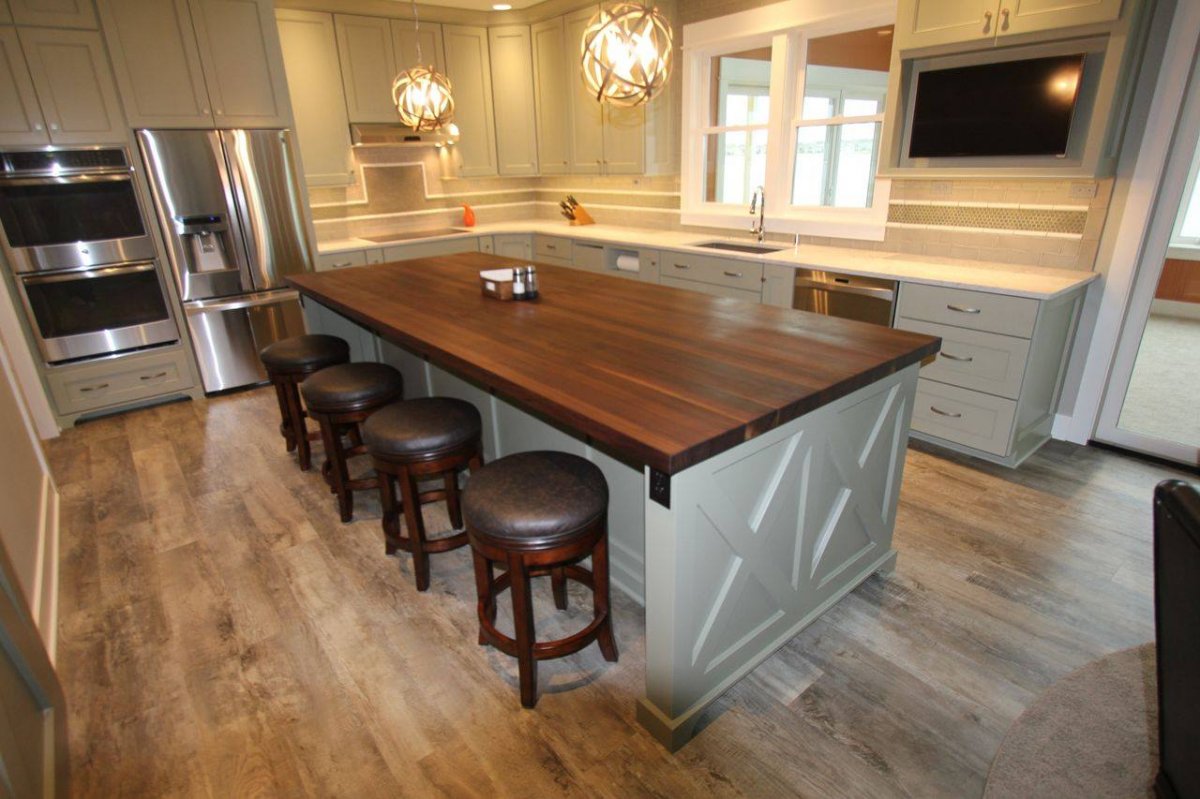
Common Mistakes to Avoid
One of the most common mistakes when installing butcher block countertops is neglecting to seal the wood properly. Butcher block is porous and can easily absorb moisture and stains if not sealed. It’s essential to use a high-quality sealant that provides adequate protection without compromising the wood’s natural beauty. Regular resealing is also necessary to maintain this protection.
Another mistake is improper measurement and cutting. Accurate measurements are crucial to ensure a proper fit, especially around sinks and appliances. Miscalculations can lead to gaps, uneven edges, and an unprofessional appearance. It’s essential to double-check all measurements and use precise cutting tools to achieve a clean, accurate finish.
Choosing the wrong type of wood for your lifestyle can also be a costly error. Some woods are softer and more prone to scratches and dents, which might not be suitable for a high-traffic kitchen. Consider your cooking habits and the level of maintenance you’re willing to commit to when selecting the wood species for your butcher block countertop.
Failing to account for expansion and contraction is another common oversight. Wood naturally expands and contracts with changes in humidity and temperature. Not allowing for this movement can cause the countertop to warp or crack. Ensure there’s adequate space for expansion around the edges and use appropriate fastening techniques to accommodate natural movement.
Using the countertop as a cutting board is a frequent mistake that can lead to deep cuts and damage. Always use a separate cutting board to protect the surface of your butcher block. While butcher block is designed to handle food preparation, direct cutting can shorten its lifespan and require more frequent maintenance.
Ignoring the need for regular maintenance is another pitfall. Butcher block countertops require consistent care, including cleaning, oiling, and occasional sanding. Failing to perform these tasks can result in a dull, damaged surface. Establishing a routine maintenance schedule can help keep your countertops looking their best.
Overlooking the importance of professional installation, especially for more complex layouts, can lead to poor results. While DIY installation can save money, it might not be suitable for everyone. Professional installers have the tools and expertise to ensure a precise fit and finish, potentially saving you time and frustration in the long run.
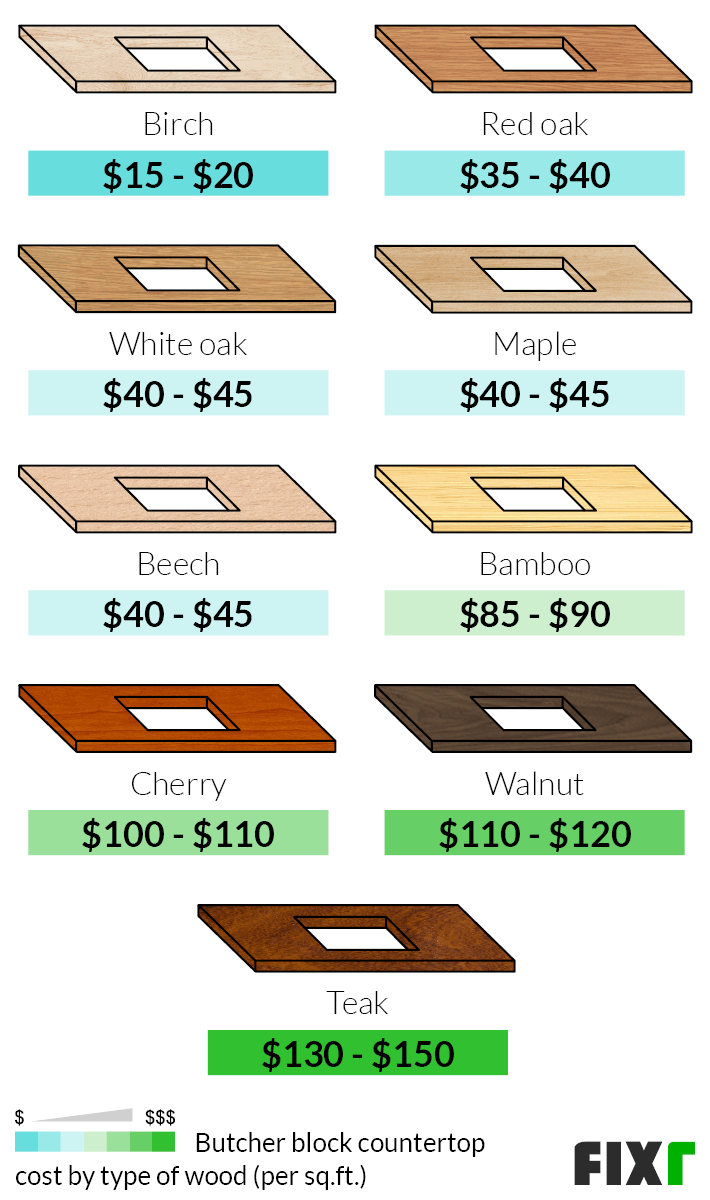
How much does it cost to install butcher block countertops on average?
The cost to install butcher block countertops varies widely, typically ranging from $40 to $100 per square foot. This includes both materials and labor. Factors influencing the cost include the type of wood, countertop size, customization options, and geographic location. More affordable woods like maple or birch cost less, while exotic woods like walnut or cherry are more expensive. Labor costs depend on the complexity of the installation and can range from $40 to $70 per hour.
Can I install butcher block countertops myself?
Yes, it is possible to install butcher block countertops yourself, especially if you have some carpentry skills and the necessary tools. DIY installation can save on labor costs, but it requires careful measurement, precise cutting, and proper sealing to ensure a professional finish. Missteps during installation can lead to costly repairs or replacements, so weigh the benefits of saving money against the potential challenges and risks.
What type of wood is best for butcher block countertops?
The best type of wood for butcher block countertops depends on your preferences and kitchen usage. Common choices include maple, birch, oak, walnut, and cherry. Maple and birch are popular for their durability and affordability. Walnut and cherry offer unique grains and richer colors but are more expensive. Consider the wood’s hardness, grain pattern, and color when making your selection. Additionally, think about maintenance requirements and how the wood will complement your kitchen’s design.
How do I maintain butcher block countertops?
Maintaining butcher block countertops involves regular cleaning, oiling, and occasional sanding. Clean the surface with a mild dish soap and water solution, and avoid harsh chemicals. Every few months, apply food-grade mineral oil or a specialized wood conditioner to keep the wood moisturized and prevent cracking. For deeper scratches or stains, lightly sand the affected area and reapply oil. Regular maintenance helps preserve the beauty and functionality of the countertops.
Are butcher block countertops a good investment for my home?
Butcher block countertops can be a good investment, adding warmth and natural beauty to your kitchen. They are durable, with proper care, and can last many years. Butcher block can also appeal to potential homebuyers, potentially increasing your home’s resale value. However, they require regular maintenance and might not be suitable for everyone. Consider your cooking habits, willingness to maintain the countertops, and overall kitchen design when deciding if butcher block is the right choice for your home.

How to Install Butcher Block Countertops
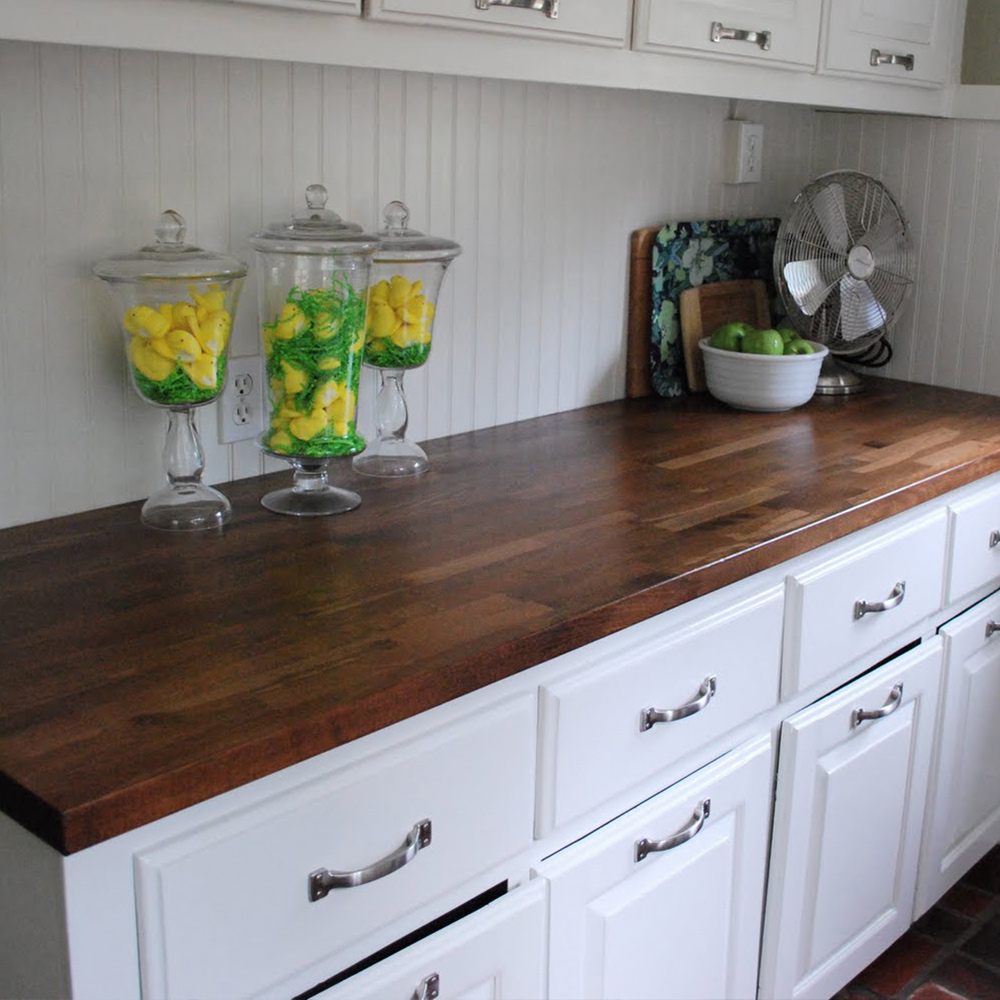
How to Install a Butcher Block Countertop

Butcher Block Countertop Cost Cost to Install Butcher Block
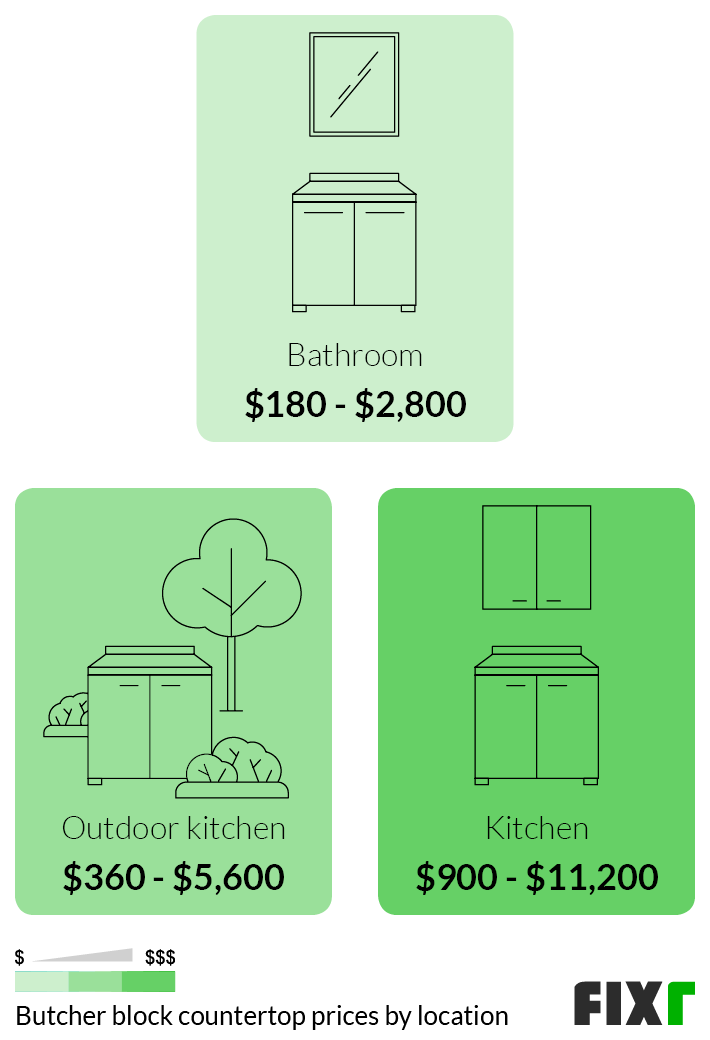
How to Finish and Install Butcher Block Countertop

Butcher Block vs Granite Countertops – Pros, Cons, Comparisons and
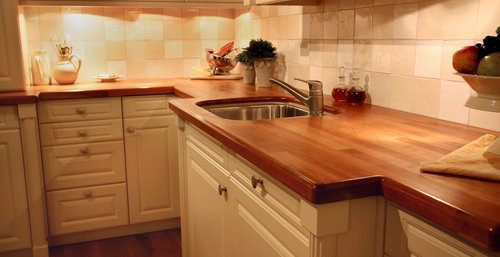
Related articles:
- Island Butcher Block Countertops
- How To Care For Butcher Block Countertops
- DIY Butcher Block Countertops
- Farmhouse Butcher Block Countertops
- Kitchen Designs With Butcher Block Countertops
- Sanding Butcher Block Countertops
- Butcher Block Countertops With White Cabinets
- Build Your Own Butcher Block Countertop
- Butcher Block Countertop With Tile Backsplash
- How To Stain Butcher Block Countertops